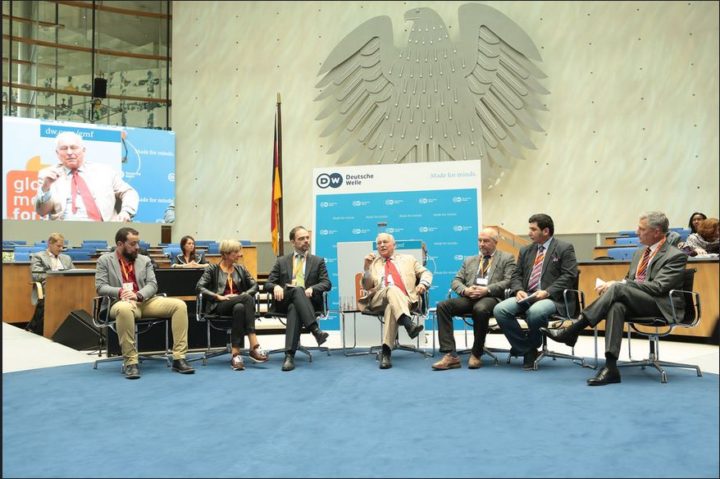Deutsche Welle / Press Release / Propaganda and media bias the subject of Global Media Forum panel “Selective Truth”
Freedom of expression and media bias was the topic of a debate at the Global Media Forum on Monday, June 13, in Bonn. Under the conference banner of “Media. Freedom. Values,” six experts from around the world met for a panel discussion on “Selective Truth,” which looked at the role of the media today, in a time when news is abundant yet censorship and propaganda run rampant.
“We all thought this would be the golden age of information and free flow of information with digitalization. We still have a lot of challenges,” said Gerda Meuer, Director of Programming at Deutsche Welle.
One of those challenges, she noted, is gaining access to unbiased information. “We have correspondents all over the world in very hard situations and we have to make sure that we can get unbiased information which is close to our values,” said Meuer.
While digitilization has offered a plethora of sources from which one can gain information, state censorship can often lead to difficulties for both journalists in accessing accurate information and for the society in which it is published.
“In Egypt and other parts of the Middle East, people look at journalists as spies,” said panelist Baher Mohamed of Al Jazeera Media Network in Qatar. “This creates a rift,” he said, noting that a society with a censored media does not have any space for debate.
It’s for that reason that Frane Maroevic, director and OSCE representative on freedom of the media, said that his organization recommends a variety of voices. “We would advocate media plurality. People should be offered multiple opinions.”
As Alexey Nikolov, managing editor of broadcaster Russia Today, pointed out, however, the problem of the filter bubble suggests there are limits to this plurality as readers and viewers select the voices they’d most like to hear. “The paradox, almost Orwellian situation, is that the more information we get, the less information we get.”
In a time when information is abundant, discerning fact from fiction, propaganda from objective reporting, therefore requires media literacy, as advocated for by Maroevic.
“Propaganda is part of the framework of conflict,” he said, referring to the International Covenant on Civil and Political Rights, he noted that Article 20 explicitly prohibits propaganda for war and hatred as a tool of war.
“The first victim of any conflict is truth,” said Wolfgang Ischinger, chairman of the Munich Security Conference.
“Through modern technology, through modern media, social media, this is not becoming less of a problem but more. Attempts to prevent, contain and terminate conflicts gets harder and harder the less efforts that are being made to provide some degree of objective reporting. The biggest obstacle to peacemaking is that people weaponize information, making it harder, practically impossible,” said Ischinger.
Though propaganda is a real problem in conflicts, the panelists called for a differentiation between the media manipulation and censorship that is perpetrated by governments and that of non-state actors, among them businessmen investors who monopolize media sources, and others.
“We now not only have governments which clamp down on governments, but journalists are increasingly at risk from non-state actors,” said Ischinger, referring to groups like the terror militia IS.
This is why addressing the issues brought on by digitalization without sacrificing the important role of the journalist in society is so vital today. “Media freedom should not be swept under the carpet,” said Maroevic, echoing the thematic sentiment of the Deutsche Welle Global Media Forum.
“Just imagine one day without media,” said Bahar Mohamed. “Everything would shut down.”
June 13, 2016
93e/16
Photos you can find on Flickr:
https://www.flickr.com/photos/






